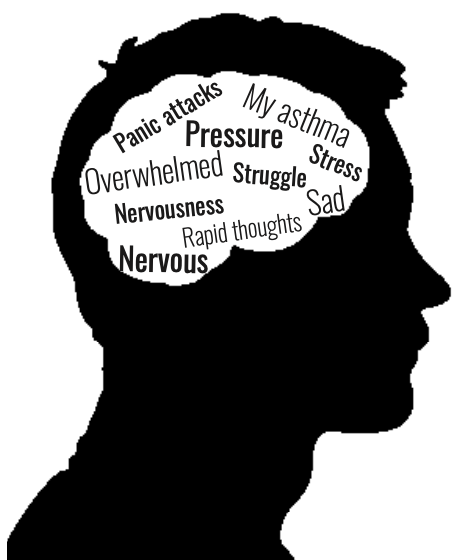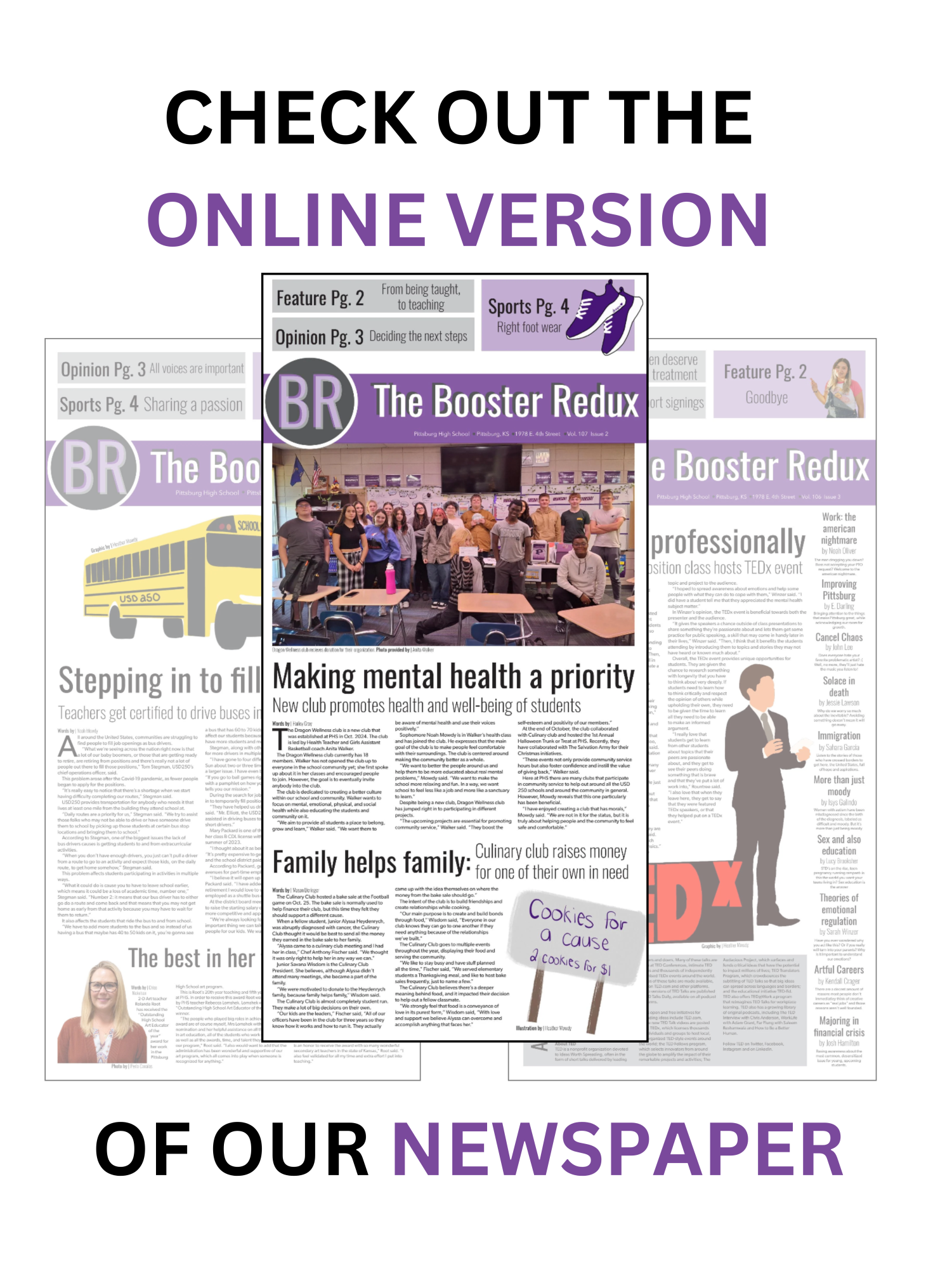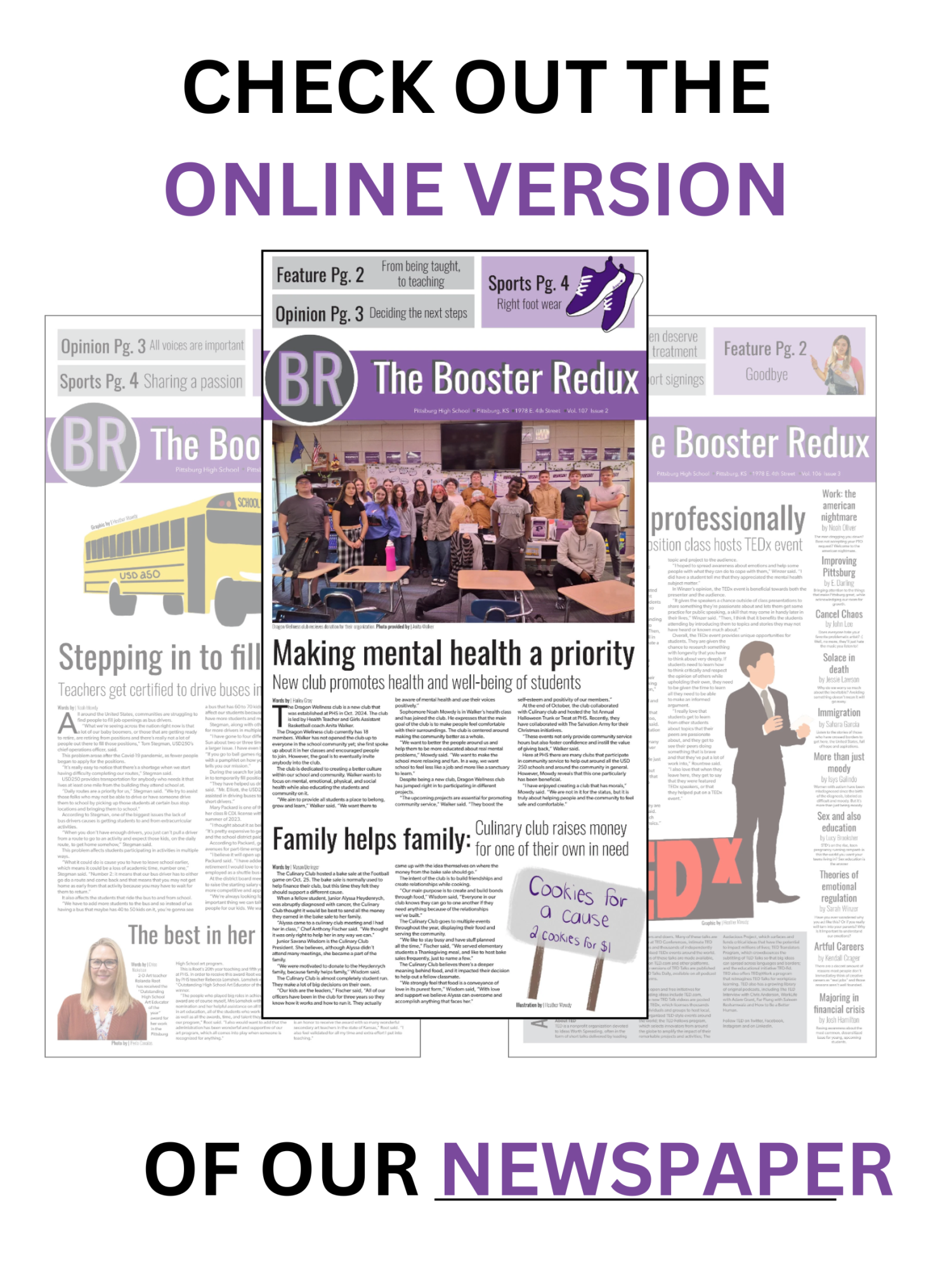When anxiety attacks: how students cope

Photo by: Elle Burgess
Students replied to an Instagram poll to describe how anxiety affects them.
February 4, 2020
According to nurse practitioner Amber Hunziker, the most common mental health concern in Pittsburg High school is anxiety.
“I would say depression is high, anxiety is way worse,” Hunziker said. “I think today’s teens have so much more on them than anybody else ever did.
Anxiety symptoms vary from person to person. Not everyone is in the same situation, a different situation may cause a different reaction.
According to counselor Gina Ulbrich, the counselors see multiple students every day who are dealing with anxiety.
“Anxiety affects everybody very differently,” Ulbrich said. “You can’t put one symptom with every person because everybody experiences different kinds of anxiety and everybody deals with their anxiety in different ways.”
In Pittsburg High School, counselors work to help students learn how to manage their anxiety so they are able to remain calm when anxiety occurs.
“We have to find what helps that person get through that anxiety for that particular issue,” Ulbrich said.
Counselors work to provide coping skills so students can handle situations, even if they aren’t comfortable in them.
Coping mechanisms vary from person to person.
“One person may need to relax, [one person may need to] vent about what’s going on and some people may need ground work, where we help them focus on getting back to their normal breathing,” Ulbrich said.
There is no specific age where anxiety peaks. Problems change with age.
“[We all have anxiety.] Everybody has to work through something in life that they don’t like, or that they don’t prefer,” Ulbrich said.
According to licensed clinical professional counselor Ashley Neely, and Hunziker, there are certain medications that can be directed toward people who struggle with anxiety. When medication is prescribed, this means a person’s anxiety is too severe for non-medical solutions.
“[Students need medication] when it becomes a problem in their daily life,” Hunziker said. “So if they are unable to walk in the school building, because they’re so anxious about going., [that’s when we prescribe medication.]”
With medication being given to a student, risks are involved.
“[Anxiety medications] do have risk of suicide ” Hunziker said. “Klonopin, Xanax, they’re so abused because they give you that relaxing feeling almost immediately.”
According to Hunziker, when a patient takes these specific medications, it actually helps with serotonin in their brain.
“Drugs affecting serotonergic neurons and their receptors are used to treat diseases such as depression, anxiety disorders and schizophrenia,” National Institution of Health (NIH) said.
According to the Oxford dictionary, serotonin is “a compound present in blood platelets and serum, which constricts the blood vessels and acts as a neurotransmitter.” It is known as a chemical substance that keeps people happy. When these specific medications are given to someone who struggles with anxiety, it helps the serotonin in their brain, and keeps them happy.
After taking certain medications, over a period of time, there can be certain factors that come up.
“People can develop a tolerance to that after several years of taking it,” Hunziker said. “That’s when we think about increasing the dose, or we see how people are doing.”




























